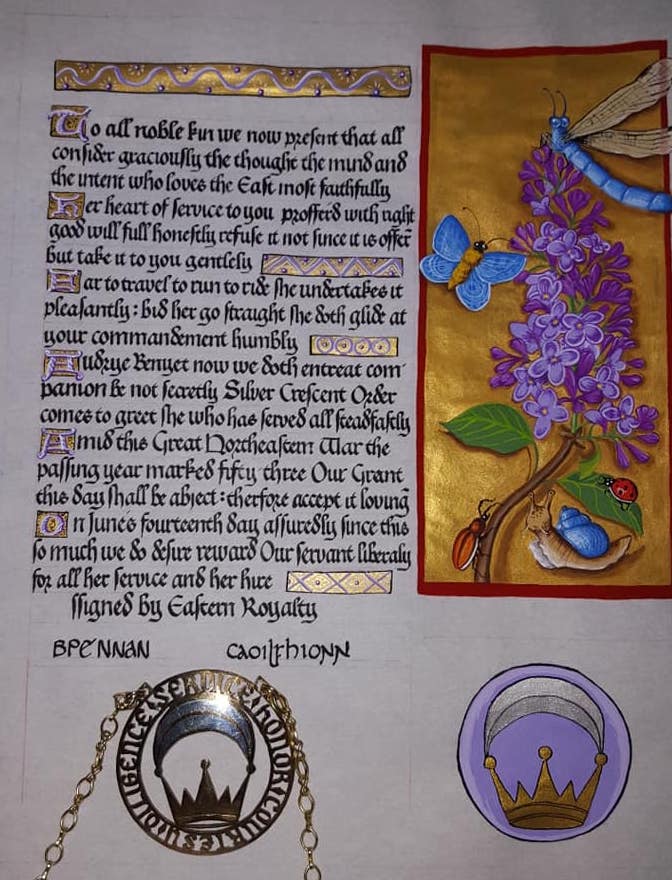There came a woman to the court of the East, and all should care to hear tell of her. A match for a hundred workers was this mead-woman, and yet she asked for no wages.
Medhbh was the woman’s name, well-attended and generous. She cared for many, first at the request of the Ard Rí, and after, she served many more, moved by fierce loyalty that welled from her as water from a spring.
For the space of a dozen years and more she labored. Stout of heart, she took the mantle of leader for her cóiceda, handling grievances and important matters, sharing knowledge of the law, and voicing the needs of her people to the land-chiefs.
Red-maned Medhbd traveled often to soldier’s fields, to places where the sea could not be seen in any direction. She helped prepare camps for the chieftains to meet with their people and gather with their warriors. Her bright hands served all with respect, from the roughest shovel-lifter to the gentlest lady, offering a thousand welcomes to each who entered her care. For these things, and more, six pearls from the sea were given to her to wear, gifts from chieftains in her honor.
One day, when the winds of Feabhra had blown for twenty-three days, one pearl fell into Medhbd’s lap as she worked. She instinctively cradled the salt-treasure to her breast. When she brought down her hand, she found the pearl transformed to garnet, red as blood and clear as water. Suddenly she was surrounded by many white-winged birds who pulled her toward their flock by their beaks and pushed her with their wings.
Thus was Medhbh
Saerlaith ingen Chennetig wrote and collected it from Athlæða Fálkribrú.
This piece is supposed to sound like a Celtic story. I read a lot of early Celtic works to hopefully make it sound right.
The last bit IN IRISH (I think): Saerlaith
Sources:
https://celt.ucc.ie//published/T106500D/index.html
https://en.wikipedia.org/wiki/List_of_Irish_kingdoms and https://en.wikipedia.org/wiki/T%C3%BAath
https://en.wikipedia.org/wiki/Gaelic_calendar
https://celt.ucc.ie//published/G106500D/index.html
https://celt.ucc.ie//published/T106500D/index.html
https://celt.ucc.ie//earlypoetry.html
https://www.vanhamel.nl/codecs/Flanagan_(M.-T.)_1998a
to
https://books.google.com/books?id=uPFjLITLW7YC&pg=PR7&lpg=PR7&dq=Flanagan,+Marie-Therese,+%E2%80%9CThe+context+and+uses+of+the+Latin+charter+in+twelfth-century+Ireland%E2%80%9D,&source=bl&ots=Fe0hpttfJH&sig=ACfU3U2-4HY34IK9L59AkqD33t5181USjw&hl=en&sa=X&ved=2ahUKEwj5gKjj1ajgAhUOT98KHXkRBegQ6AEwA3oECAIQAQ#v=onepage&q=Flanagan%2C%20Marie-Therese%2C%20%E2%80%9CThe%20context%20and%20uses%20of%20the%20Latin%20charter%20in%20twelfth-century%20Ireland%E2%80%9D%2C&f=false
https://findwords.info/term/curran
https://en.wikipedia.org/wiki/Kildare_Abbey
https://www.focloir.ie/en/dictionary/ei/north-east


